The introduction of modern technologies, in particular, various warning sensors and devices, unfortunately, does not yet make the work of the technical base of the vehicle. A variety of malfunctions and breakdowns in the operation of devices are still annoyed by all owners of cars. Overheating of the motor is a problem that carries a lot of trouble not only to the device itself, but also located close to items.
Content
Engine overheating, what changes occur in the engine
The consequences of the overheating of the motor directly depend on the duration and degree of thermal impact. Weak overheating, the temporary effect of which lasts no more than ten minutes, can not cause significant damage. There may be noticeably small piston melting. It is necessary to experience the driver only in case of smoke.
With the average degree of overheating, if heat exposure exceeds twenty minutes, more substantial consequences are noticeable. As a rule, curvature, mechanical damage or complete combustion of the cylindrical head unit is formed. As a result of these damage, the valve jack can be departed. In addition, there may be a disruption of the tightness of the glands and the destruction of intercoltaic partitions.
If the thermal impact is strong and uncontrollable, it leads to the most severe damage that are not amenable to rehabilitation. In this case, all the details suffer. The worst outcome is the explosion of the power unit. It saves only the wave-like flow of destruction, which in the process is simply shuffling the vehicle.
Results of strong engine overheating:
- Traveling or complete destruction of the piston mechanism.
- The destruction of the oil structure, resulting in lubricating properties and friction is formed between the adjacent parts of the motor.
- Outlook the crankshaft and valve nests.
- Full motor dear.
Overheated engine, reasons overheating
To eliminate excessive overheating of the motor, it is necessary to find out its reasons. It is worth saying that excessive thermal impact can be conditionally divided into inner and external.
The internal type of overheating is considered the most dangerous, because it actually does not have external manifestations - the temperature of the liquid does not exceed the coolant, the strong heat generation occurs only inside the motor.
Only a decrease in power in the internal combustion engine indicates detonation.
Causes of overheating of the motor:
- Insufficient coolant level. This is usually due to a leak, which is hidden from human eye. Potential sources - low-challenging cracks in nozzles, lack of necessary adjunctions of gaskets or clamps. The presence of leakage shows specific stains that are formed on asphalt under the vehicle. Much worse if the coolant goes into the motor cylinder or mixed with oil. This development of the situation occurs if the block of cylinders is deformed or destroyed.
- Too low cooling system performance. As a rule, it is associated with a non-working fan, a clogged radiator or too weak degree of tension of the generator belt. Most likely, to solve the overheating problem, it is necessary to completely replace the radiator.
- The final breakdown of the thermostat or deposit on it. As a result of the clogration, the functioning of the moving element is significantly reduced, respectively, the temperature of the coolant is growing and overheating is formed. To protect the thermostat, the most soft water should be used, because unnecessary minerals and salts lead to its slow destruction.
- Excessively high load on the motor in the summer. During the rise up, the engine runs on wear. In this case, the high temperature of the air exacerbates the situation. The cooling system no longer copes, with the result that excessive heat generation occurs in the motor.
- In the combustion chamber high level of Nagara. It occurs during incomplete combustion of oil, which enters the cylinders. As a result of a thick layer of mud deposits, the so-called independent heat insulation arise. At the same time, difficulty in heat transfer and cooling are formed. This cause of overheating is popular among vehicles with high mileage.
- The use of technical additives for the motor oil. With their frequent use on adjacent elements, a metal-ceramic layer arises, the thermal insulation properties of which are capable of creating strong overheating.
Additional reasons that cause overheating of the motor - if a long time to ride low transmissions or with a partially turned on hand brake.
Engine overheating, how to warn motor overheating
To prevent overheating of the motor, it is necessary to minimize the likelihood of the appearance of the above reasons.
There are a number of major preventive measures:
- Permanent tracking of the health belt of the generator and the degree of its tension.
- Setting the fan power sensor.
- The choice of decent auto-refueling and high-quality fuel.
- Tracking the operation of the thermostat and radiator, as well as their elements.
- Control the oil level.
- Properly apply chemical preparations that are aimed to reduce the likelihood of the formation of internal overheating.
- Maintain a clean and working condition of each working unit of the vehicle.
Driver's actions that the driver should do while overheating the engine
When the motor overheating does not follow it immediately jammed.
You must stop the vehicle and open the hood when the engine is on.
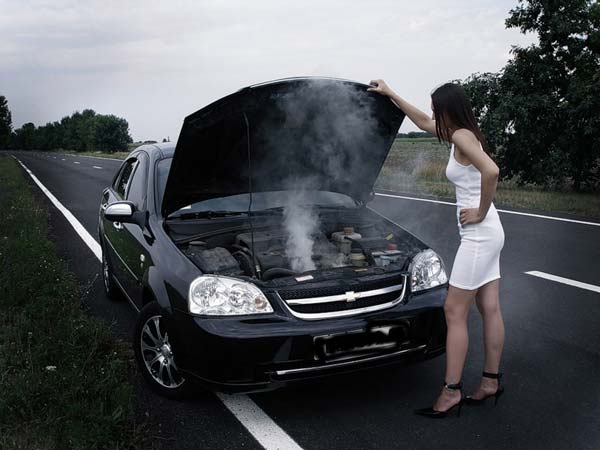
When the temperature of the motor decreases, you can continue to move. However, the speed of driving should be small.
Tips of professionals
- Do not use water to reduce the temperature of the motor.
- Do not open the radiator cork with an overheated motor.
- Do not ignore the overheating of the motor.
Related Materials
- Stove 2110, bad warm stove 2110, VAZ 2110 heating system, repairing the heating system VAZ 2110 with their own hands
- VAZ 2114 stove blows with cold air, stove 2114, bad warm stove VAZ 2114, device and repair of heating VAZ 2114 do-it-yourself, removing the stove VAZ 2114
- How to subdominize the car. How to put a jack. Types of jacks for cars.
- VAZ 2109 Fuse Block, VAZ 2109 Fuse Block Carburetor, VAZ 2109 Fuse Block Injector, Old VAZ 2109 Fuse Block, VAZ 2109 Fuse Block, VAZ Fuse Block 2109
- Car exhaust gas catalyst, faulty catalyst, pluses and cons of the catalyst, how to change the catalyst for the planeencitel
- Stove blowing cold air VAZ 2114, badly blowing the stove VAZ 2114, why badly blowing the stove VAZ 2114
- How to find out the owner of the car by the number of his car, check the car by the number of the traffic police machine, check the car by the state number of the car for free
- How to choose Used tires, Useful Tips
- Winter car road, pressure in passenger car tires in winter, good battery for the car in winter, whether to warm the car in winter
- In winter, the car is poorly started. How to make a car in winter, do you need to warm up the car in winter, useful tips
- Economy fuel consumption machines, the most economical car consumption
- Tires brands for passenger cars, labeling of car tire labeling, residual passenger car tire protector, how to pick a tire on a car brand, car tire tread pattern
- Working transmission operation, mechanical gearbox clutch work, driving with manual gearbox, useful tips
- Rear beam Peugeot 206 sedan, rear beam device Peugeot 206. Rear beam Peugeot 206 Malfunction, repair of the rear beam Peugeot 206
- Diesel fuel in winter, additive for diesel fuel in winter, how to choose the best diesel fuel
- Diesel winter does not start. How to start diesel in winter, heating diesel in winter.
- Japanese bridgestone tires, winter studded bridgestone tires, bridgestone tires brand
- Tire marking decoding for passenger cars, labeling wheels, how to choose the right tires on the disks
- Diesel engine in winter, launch of the diesel engine in winter, what oil to fill in a diesel engine in winter, useful tips
- LED backlight of the car, the backlight of the bottom of the car, the backlight of the legs in the car, the backlight in the door of the car, the backlight of the car is fine
- Recovered tires, bus tire, restored tire protector, can I use them
- Choose winter tires, which is a winter tires, which pressure in winter tires should be marked with winter tires, how to choose the right winter tires, the best winter tires 2019
- Steering rail rail, knock of steering rack, reasons for the knock and repair of the steering rack do it yourself
- Cameless car tires, a set for repair of tubeless tires, repair of the cannon-free tire do it yourself
- Russian tires, Russian tires Winter, Russian All-season tires, Voronezh AMTEL tires, Tires "Matador Omsk Tire", Kama-tires are world-class bus
- How to open a car without a key. Lost the key from the car what to do, the key from the car inside the car
- Silent tires, quiet winter tires, quiet studded bus, which tires to choose, overview tires
- Tires and safety, safety of the bus, why it is necessary to constantly monitor car tires
- Rules of safe driving of the car in the rain and slush, safe driving of the car for beginners
- Rust converter which is better for cars, rust converters to choose how to use rust transducer, professionals
- Polishing the body of the car do it yourself, how to choose a polishing paste, useful tips
- Engine durability, engine life, how to extend engine life
- Knock in the car. Knock when moving the car. What can knock in the car. How to determine the cause of the knock.
- ABS car, what is ABS car, ABS system malfunction, ABS diagnostics
- Overtaking a car when you can start overtaking a car, rules of traffic rules
- Fuel pump VAZ 2110, VAZ 2110 gas station scheme, VAZ 2110 fuel pump device, VAZ 2110 gas station repair,
- Automotive antennas for radio, automotive antenna device, car antenna do it yourself
- Front suspension Kalina, device front suspension Kalina, knock in front suspension Kalina, repair of front suspension Kalina
- Shock absorber Oil, best oil shock absorbers, pumping oil shock absorbers, how to properly pump oil shock absorber
- Clutch malfunctions, touches clutch, causes a clutch malfunction, how to eliminate
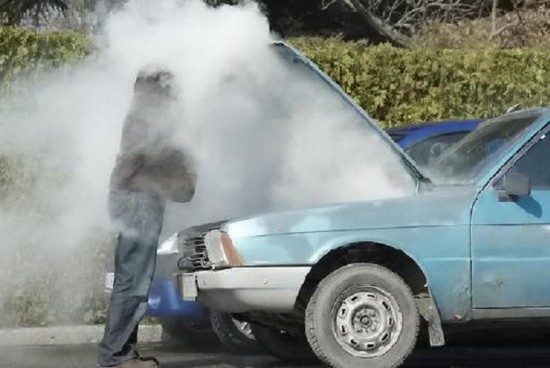
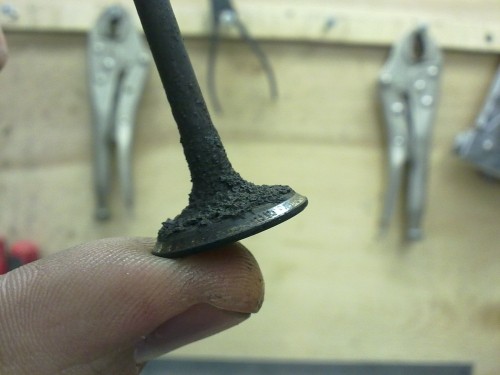
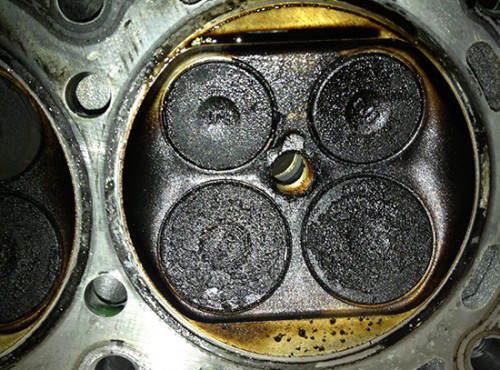
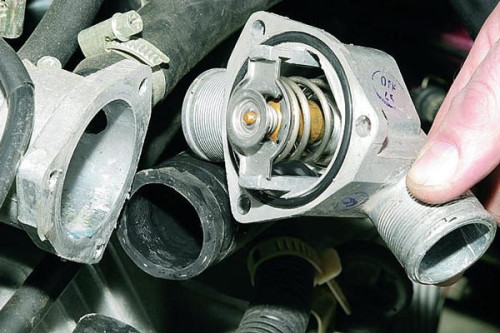
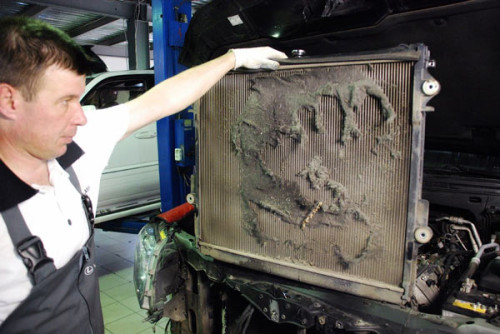
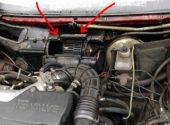



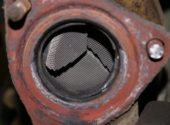

Comments